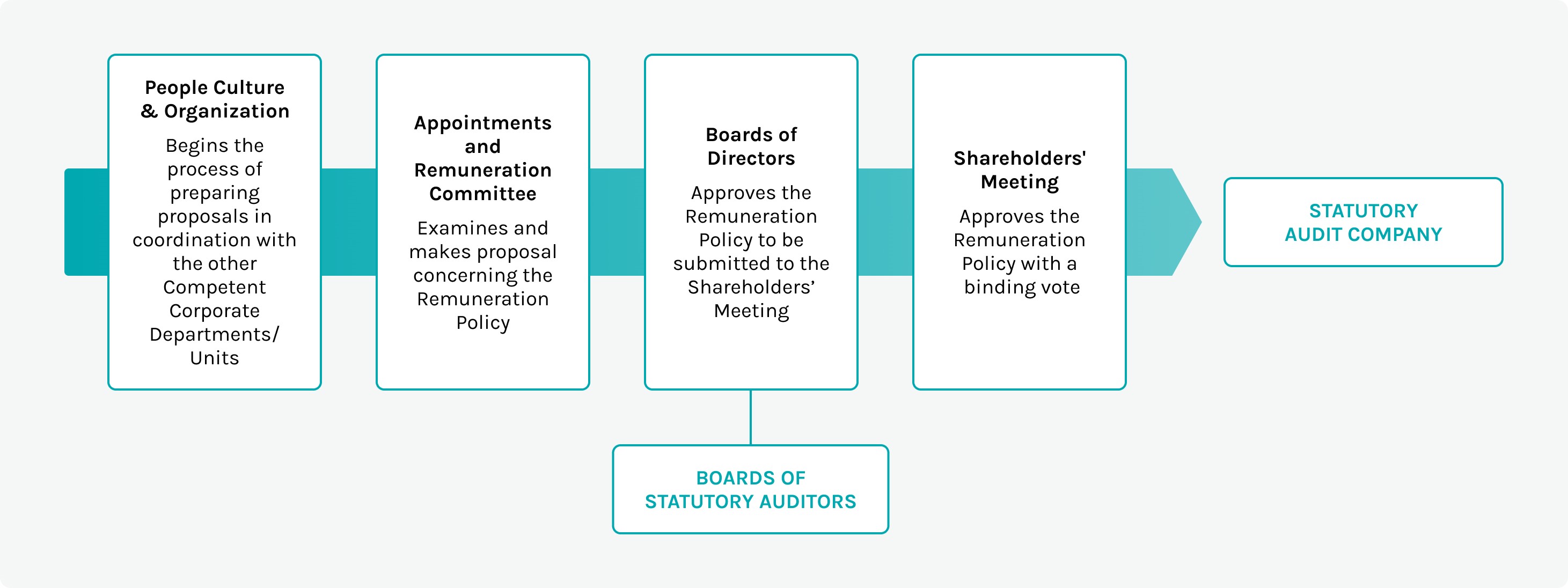The remuneration policy reflects and supports the Group’s strategy and values, with the purpose of creating medium-long term value, promoting equity and sustainability also by applying a retribution system that provides consistency between the bonuses and the value generated for the community, in response to the demands of our stakeholders.
Through its remuneration policy, Acea aims to attract, motivate and retain people.
The incentive systems are designed to ensure recognition for the results achieved in respect of strategic objectives, at the same time reinforcing social responsibility and sharing of the sustainable behaviours that characterise the entire Group, together with adherence to company values and people’s commitment.
The guidelines of our remuneration policy are defined according to the following principles:
The following elements are always taken as reference for the definition of the remuneration policy:
How remuneration policy is defined in Acea
The retribution system is the result of a clear, transparent process, involving remuneration policy proposals put forward by the Appointments and Remuneration Committee and approval of the same by the Board of Directors. The interaction between these two bodies guarantees the observance of rules, avoiding the occurrence of conflict of interest situations and ensuring transparency thanks to the availability of adequate information.
Pursuant to Article 2389 of the Italian Civil Code, the Annual General Meeting may decide not to intervene in determining the remuneration of executive Directors and Committee members, or may establish a maximum amount, leaving the Board to decide on its allocation.
The AGM also decides:

The Acea Group does not offer employees stock options as part of its reward policy. The Appointments and Remuneration Committee has worked on defining the architecture of the new long term incentive plan, the 2024-2026 Long Term Incentive Plan, in line with market best practices. The 2024-2026 LTIP is a rolling plan based on three cycles of three years providing for the payment of a bonus, at the end of the reference three-year period, on the achievement of predetermined goals. For the first cycle, the indicators used are the cumulative EPS (Earnings per Share), the NFP/EBITDA ratio, cumulative regulated Capex and a composite sustainability objective with a weight corresponding to 20%.
table: To discover the components of the remuneration assigned to directors and general managers, please see the following table: Remuneration paid to the members of the administration and control bodies, general managers and other executives with strategic responsibilities
Discover the latest news and initiatives of the Acea Group

Acea for World Energy Saving Day

Visit the virtual museum about the history of the Acea Group

The channel for the commercial requests on land urbanisation

Acea turns the spotlight on the Rome Film Festival 2023

Acea is in the "Gold class" in the .trust research

Read more about our culture of inclusiveness